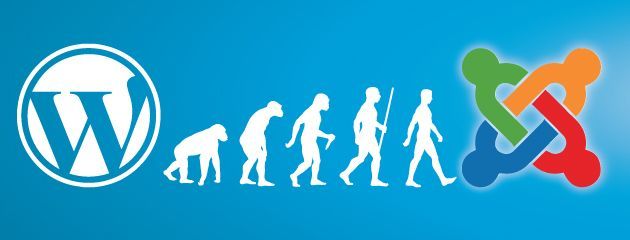
If you have set up a blog, intranet, or Internet website then no doubt you have had to contend with the question of which solution to use for your Content Management System (CMS) requirements. Your initial research may have resulted in your selecting WordPress (WP) as your CMS system of choice, however given the added benefits of Joomla, it is worth reassessing your initial decision and taking the additional effort to migrate to Joomla as the benefits of this platform are significant.
Common Benefits
Both WP and Joomla are free, open source CMS solutions that continually evolve to meet current market trends and ensure that any bugs or security compromises are quickly dealt with. Both solutions have active, supportive communities and are SEO friendly; and both solutions are easy to work with and have site-bridging options.
But Why Migrate to Joomla
Notwithstanding that there is much overlap between the two solutions, as is to be expected, Joomla should be your solution of choice for the following five reasons:
1.) Power to the people – Joomla is a more powerful solution than WP. It has an extensive number of plug-ins and powerful extensions that simply are not available with WP that make it a one stop shop for those looking to build a blog for anything other than the most basic of purposes. Similarly, the number of Joomla templates and Joomla extensions ensures that Joomla can be everything for everyone. Sites like Joomlashack contain all the Joomla templates and Extensions you could ever require in this respect. Blogs with a lot of content such as news sites and those that are looking to span e-Commerce will require the power of Joomla as it offers everything that bloggers will require with plenty in reserve.
2.) Ease of use – there is perhaps a bit of a misconception that WP is easier to use than Joomla – nothing could be further from the truth. Perhaps this fallacy developed due to the fact that WP is actually quite a simple and intuitive tool that most users feel comfortable with straight away. Joomla can also be very easy to use and intuitive. However, due to it being a more powerful solution with much more a vast array of inbuilt navigation and display options, numerous module positioning options, comprehensive security features with regard to user group management, and more complex out of the box options already included thereby reducing the need for plug ins, Joomla does require more preliminary work to fully utilize its capabilities. In many respects this battle for CMS dominance is like that between iPhone and Android as a smartphone operating system. iPhone may be a little easier to use and perhaps a touch more intuitive than Android but invest a little time in Android and you have much more power at your fingertips. And that’s what a CMS is all about.
3.) Community – both WP and Joomla have established community bases where tips, advice, and tricks are shared freely; Joomla’s community is more active though when compared to WP, with active contributors on a daily basis. It is almost as though WP believes that due to its dominance in the CMS space it does not need to foster this part of its product offering. This is a mistake as any open source program must develop its community to the best of its ability both for support and evolutionary purposes. Just take a look at the ever-growing community of Joomla.
4.) Evolution – although both WP and Joomla continue to update their offerings with frequent new releases, the progress made by Joomla seems very focused on making the user experience easier. Joomla’s new releases and templates are more significant and tend to address relevant issues rather than just being updates for the sake of updating.
5.) Paying for it – all of the above points are relevant to people using a CMS solution to build and maintain their own blog. However, what about the people out there who want to blog but don’t want to have to build or maintain their own site. This is going to cost money. So, which solution is going to be cheaper to use for the technically challenged? In general, web developers competent in both solutions will attest to the fact that Joomla requires much less time to develop the front end than WP; page weight is less with Joomla than WP, CSS validation errors are lower with Joomla, Joomla has HTML validation unlike WP, and Joomla requires far less lines of custom JavaScript and PHP code than WP. All this translates to faster build and maintenance times resulting in reduced costs to the blogger.
The case has been made and it is a compelling one – with Joomla you have the ability to access the future in CMS, today.
By Jove Welner
CEO of App Champ, a viral App blog that objectively rates the best Apps ever made.
